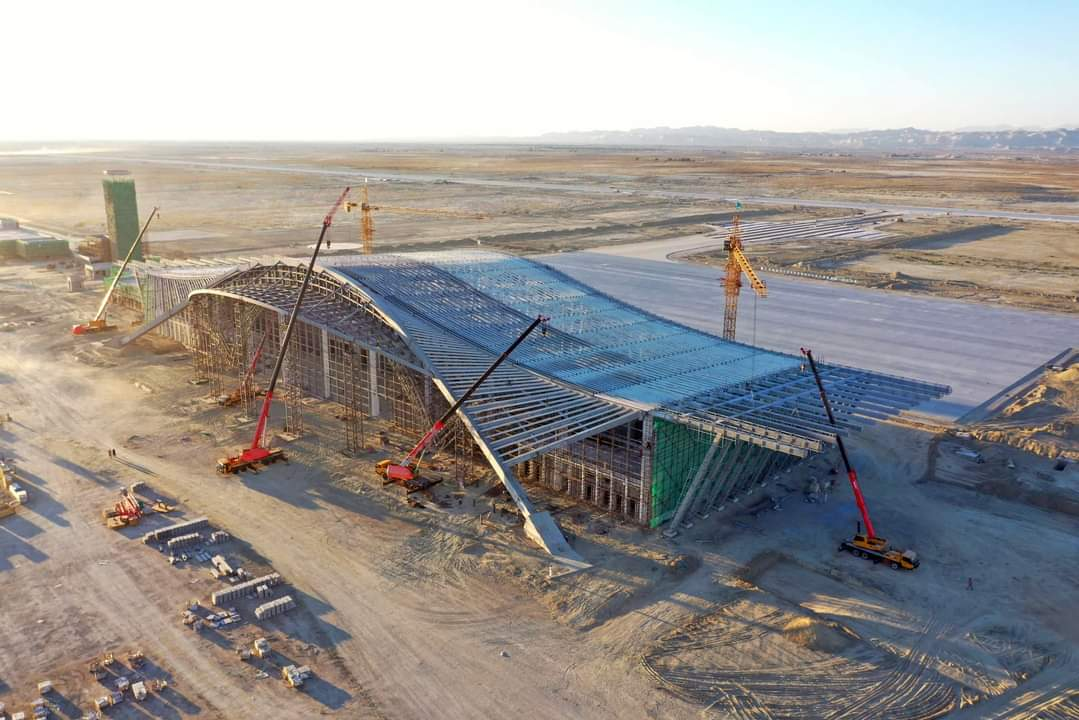China Puts Brakes On Pakistan's Belt and Road Proposals

The Lede: Beijing has rejected calls from Islamabad to invest in fresh Belt and Road projects in Pakistan, the minutes from a high-level meeting show, according to a report from Nikkei on Monday. This comes as China has moved toward being more selective and cost-conscious in its foreign development projects, especially amid its own economic slowdown.
What We Know:
- The 11th meeting of the Joint Cooperation Committee (JCC), the top decision-making body for the China-Pakistan Economic Corridor (CPEC), took place in October last year, but the minutes were signed in July.
- At the meeting, China declined Pakistan’s proposal to build a 500-kilovolt transmission line to connect the southern port of Gwadar, where major Chinese infrastructure investment has been concentrated, to the national electricity grid in Karachi.
- China also compelled Pakistan to drop its objections to a 300 megawatt coal-fired power plant in Gwadar. Islamabad originally wanted to move the power plant to another location where it could use domestic rather than imported coal in its operations.
- In response to the latest reports, Pakistan's Ministry of Planning and Development downplayed Beijing's rejection and insisted that there would be continued and expanded cooperation under the CPEC in areas including water resource management, climate change, and tourism.
The Background: This year, China is marking the 10th anniversary of the BRI, its massive plan to expand its influence and build infrastructure stretching through Asia, Europe, and Africa. The CPEC is the Pakistani component of China’s BRI. The total cost of the infrastructure development under CPEC has been valued at $50 billion. Pakistan has been experiencing political unrest since April of 2022 when former Prime Minister Imran Khan's government was toppled. In recent years, militants have also been targeting Chinese interests with terrorist attacks.
Likely Outcomes:
- Beijing’s pivot to being relatively more frugal and focused in its BRI infrastructure projects will likely lead to a scaling-down of the generous and expansive development in Pakistan that has been so prominent in the country in recent years. The height of significant Chinese projects and investments in Pakistan are probably already in the books.
- Pakistan may point to the U.S. Partnership for Global Infrastructure and Investment (PGII), which is seen as a counter to China’s BRI, as a motive to expand Chinese infrastructure cooperation. Due to the domestic political dimension of this cooperation, Pakistani politicians likely will keep the issue as a policy platform in the foreseeable future. Nevertheless, all sides may have to think twice about what kind of projects they propose and how much money they can realistically expect.
- Despite the uncertain financial and economic returns of BRI in Pakistan, China may still keep a foot in the door to hold its geopolitical ties in the neighboring country as a hedge against India. Relations between Beijing and New Delhi have not been in the best shape recently. Chinese President Xi Jinping recently skipped the G20 summit held in the Indian capital in a move that analysts see as a blow against India. Ties with Islamabad may yet play a role in regional geopolitics in this perspective.
Quotables:
"Like any investment process, China is adapting its BRI investment process based on experience and a deeper understanding of how to more effectively align investments with strategic objectives. China's approach to Belt and Road investments is guided by prudence and long-term sustainability. Concerns like political instability in partner countries like Pakistan necessitate greater caution, especially regarding the safety of Chinese nationals. In the midst of global and domestic challenges, aligning investments closely with China's strategic interests is essential for the initiative's long-term success." – Andy Mok, senior research fellow at the Center for China and Globalization
"Pakistan has shown itself to be an inherently unstable political entity. The Beijing government has seen enough over the years to know that Pakistan achieving stability and steady economic growth is an unlikely prospect." – Jeremy Garlick, associate professor of international relations at Prague University of Economics and Business
Good Reads:
China spurned Pakistan's proposals for new Belt and Road projects (Nikkei)
